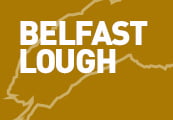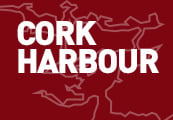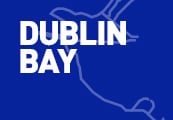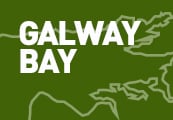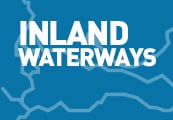Displaying items by tag: Bottom Trawling
Banning Bottom Trawling Could Lead to Higher Carbon Footprints As Consumers Seek Alternatives
Banning demersal trawling would lead to higher CO2 emissions as consumers switch to more protein produced on land, according to a new scientific paper.
Writing in the ICES Journal of Marine Science, researchers agree that demersal trawling can be highly destructive when not managed well, but when stocks are overfished, this is usually due to poor management.
The scientists led by Prof Ray Hilborn at the University of Washington and involving researchers at Heriot-Watt and Bangor universities used relative benthic status to measure the impact of trawling on the seabed.
Demersal trawls generally have higher levels of bycatch and discarding, but there have been improvements in the selectivity of gear over the past two decades.
A global assessment of relative benthic status showed very different levels of impact of trawling around the world, with severe levels in parts of the Mediterranean while the Irish Sea and west of Scotland are not quite so damaged.
Australia, Southern Chile and the Gulf of Alaska were the least depleted.
The authors agreed that areas with sensitive habitats like deep water coral should be closed to trawling, as these species can take decades or centuries to recover.
In a review of data from “whole lifecycle” assessments of different foods, they found that an average kilo of bottom-trawled fish produces 4.65 kg of CO2. While this is double the carbon footprint of chicken (2.28kg), it is one quarter the footprint of beef (19.2kg).
They point out that well-managed fisheries have lower fuel use, citing Alaskan pollock, the world’s largest whitefish fishery, as one example. It produces just 0.83kg of CO2 for every kilo of food, and the authors attribute this to enlightened fisheries management.
The authors note that catching fish in the ocean “uses no pesticides or fertilizer, almost no fresh water, and no antibiotics”.
“The global impacts from these would be increased if bottom trawling was banned and/or agriculture or aquaculture increased to compensate, although there are significant differences in these impacts among cropping systems,” it says.
The authors conclude that banning all demersal trawling would not be good for the planet if it drives consumers to another animal protein with a higher carbon footprint. They recommend improving management rather than introducing widespread bans.
The full paper is here
Two non-governmental organisations (NGOs) have called on Government ministers to approach fisheries management as “carbon management” by including it in Ireland’s climate action plans.
Birdwatch Ireland and the Our Fish campaign are seeking phasing out of bottom trawling by 2030 as one of a series of measures in a briefing published today (May 11).
They have issued their appeal to Minister for Agriculture, Food and the Marine, Charlie McConalogue, Minister for the Environment and Climate Eamon Ryan, and Minister for Housing and Local Government Darragh O'Brien.
The two NGOs will outline their views at an event in the Dáil this afternoon hosted by Jennifer Whitmore TD, Social Democrat spokesperson for climate action and biodiversity.
 Jennifer Whitmore TD, Social Democrat spokesperson for climate action and biodiversity
Jennifer Whitmore TD, Social Democrat spokesperson for climate action and biodiversity
Angela Helen Martin, Agder University, Norway, who is one of four speakers, said that fish are “keystones of the ocean’s biological pump, the system constantly at work capturing and storing excess carbon from the atmosphere, where they play a critical role in the ocean’s capacity to sequester carbon”.
“When more fish are left in the ocean, they not only enable whole ecosystems to thrive, they also help more carbon sink to the ocean floor,” she said.
“ The removal of too many fish using methods like bottom trawling can add excessive emissions and damage this carbon-storing habitat - and this has potentially huge implications for climate and biodiversity obligations,” Agder said.
Also speaking are Prof Dave Reid of the Marine Institute, Our Fish programme director Rebecca Hubbard and Birdwatch Ireland marine policy and advocacy officer Sinéad Loughran.
The “Fish Are Carbon Engineers” briefing drawn up by Birdwatch Ireland and Our Fish calls on the three ministers to :
- conduct ecosystem and climate impact assessments of Irish fisheries to ensure that fisheries management decisions such as annual quota setting include the impact of fishing on the carbon sequestration potential of fish populations and the seabed, CO2 emissions, minimisation of bycatch of protected species, food web functioning and seabed integrity;
- implement Article 17 of the Common Fisheries Policy to ensure access to fisheries is based on a transparent set of environmental, social and economic criteria;
- phase out “destructive fishing, including bottom trawling” by 2030;
- remove fuel subsidies through the current revision of the EU Energy Taxation Directive (ETD);
- introduce “climate-smart” marine spatial planning, including prioritisation of sea bed protection.
“These measures will also demonstrate the country's leadership in addressing the pressing issues of climate change and biodiversity loss,” the NGOs state, and say they will require cross-departmental action.
The “Fish Are Carbon Engineers” briefing is here
Irish Wildlife Trust Questions Why MEPs Did Not Support Ban on Bottom Trawling in Marine Protected Areas
The Irish Wildlife Trust has welcomed a European Parliament report calling for action on bottom trawling but has questioned why most MEPs did not support a ban on the fishing technique in marine protected areas (MPAs).
A report by Portuguese socialist MEP Isabel Carvalhais entitled “Towards a sustainable blue economy in the EU” was adopted by MEPs this week.
The IWT has queried why the original text of the report calling for a ban on bottom trawling in all MPAs was not adopted, even though it had previously been supported in the European Parliament’s Fisheries Committee.
“Instead, the majority of MEPs, including Irish Fine Gael and Sinn Féin representatives, voted to dilute the text and only restrict bottom trawling in so-called “strictly protected” areas, which cover only 1% of EU waters,” the IWT noted.
Another amendment calling for the EU to prohibit all environmentally damaging extractive industrial activities like mining and fossil fuel extraction in MPAs was adopted by all Irish MEPs.
The IWT said it believed bottom trawling “falls within the category of ‘environmentally damaging extractive industrial activities”. It noted that the International Union for the Conservation of Nature defines “industrial fishing” as all fishing using trawling gear that is dragged or towed across the seafloor or through the water column, and fishing using purse seines and large longlines.
Shadow rapporteur for the Greens/EFA group Grace O'Sullivan said the report “marks a serious step forward for the Fisheries Committee, which is a traditionally tough place to get environment protection legislation passed”.
“Our group achieved some key wins in terms of language on bottom-trawling, mapping carbon-rich marine habitats, and a ban on extractive activities in MPAs,” she said.
“However I am dismayed that a majority of MEPs are still unwilling to effectively protect MPAs,” O’Sullivan continued.
“In many MPAs in northern Europe, bottom-trawling is actually more intense than elsewhere. This is a complete contradiction in terms. Together with civil society, our work continues now, as member states must meet commitments under the Biodiversity Strategy and as the Commission prepares its ‘Action Plan to conserve fisheries resources and protect marine ecosystems", she said
The European Parliament also voted to map and restore carbon-rich marine habitats, protecting them from activities that can disturb and release carbon stored in the seabed, like bottom trawling.
IWT marine policy and research officer Regina Classen welcomed this amendment as “particularly welcome and timely as Ireland plans to increase its MPA coverage to 30% by 2030”.
British Plan to Ban Bottom Trawling Breaks Brexit Fishing Deal, Denmark Says
A report in The Guardian says Denmark has accused the UK of reneging on the post-Brexit fisheries deal by pushing for a ban on bottom trawling at the Dogger Bank.
Danish boats have fished the area for hundreds of years and today the country’s industry lands €3.6m worth of sand eel from Dogger Bank every year.
The North Sea conservation zone hosts a number of species such as halibut, sharks and skate which are particularly vulnerable to disturbances of the sea bed.
Moves to ban the practice of bottom trawling have been welcomed by environmental groups.
But Denmark’s fisheries minister Rasmus Prehn says his country’s fishers “are already in a very difficult situation due to Brexit so this would be even more difficult for them and we can’t really accept that”.
The Guardian has more on the story HERE.

